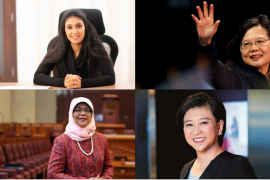By Miracle Nwankwo
The practice of female genital mutilation is a common tradition is some parts of the world. “Although primarily concentrated in 30 countries in Africa and the Middle East, female genital mutilation is a universal problem and is also practiced in some countries in Asia and Latin America. Female genital mutilation continues to persist amongst immigrant populations living in Western Europe, North America, Australia and New Zealand,” the United Nations says.
Female genital mutilation (FGM) also known as female genital cutting or female circumcision is the procedure of altering or injuring the female genitalia for non-medical reasons and this practice is globally recognized as a violation of the human rights, the health and the integrity of girls and women.
The fight against FGM is to protect women and girls from the short-term and long-term complications of this practice, because we believe that no human deserve to be meted such unfair treatment backed by negative belief and superstition.
To this end and in efforts to Ending Female Genital Mutilation By 2030, eight African women are focused on making the elimination of this practice a reality.
Ifrah Ahmed
In Somalia, where the practice of FGM has been normalized, Ifrah an Ireland refugee was shocked find that it was not a common practice in Ireland.
Ifrah was eight years old when she was cut, and at 15 she was gang-raped. At the age of 17 she managed to escape Somalia after a war broke out in 2006. She evaded traffickers and was granted asylum in Ireland in 2006.
On getting to Ireland, she joined the campaign against FGM and even became a driving force behind the official ban of FGM in the Ireland in 2012.
In 2010, she found The Ifrah Foundation, to advocate for the eradication of FGM in Somalia and other parts of the world.
Rugiatu Turay
Madam Rugiatu Turay is also a survivor of the FGM tradition in Sierra Leone, a West Africa Country with one of the highest rates of FGM in Africa and the world.
Madam Turay was 12 years old when she was blindfolded and stuffed with a rag in her mouth to stop her screams from being heard, while she was cut. She bled excessively and almost lost my life and was muted for a week due to the pain and shock.
Decades later, Madam Turay found herself in Kalia refugee camp in Guinea, where she had fled Sierra Leone’s civil war that raged from 1991 to 2002. On getting there, she was shocked to find mothers organizing for their daughters to be cut amid the hardship and insanitary condition in the camp.
At this point, she started her journey to campaign against female genital mutilation in Sierra Leone.
She co-founded the Amazonian Initiative Movement (AIM) in 2002 to fight harmful cultural practices, including FGM, through education and empowering girls and women.
Now in her 40s, she is working in the hope that her country will ban the practice and many women and unborn generations would not have to suffer from this harmful tradition in Sierra Leone.
Jaha Dukureh
Jaha is a Gambian and survivor of FGM born in 1989. She experienced genital mutilation at infancy, she was cut one week after her birth. However, Jaha is not the only Gambian girl-child who is a victim of this practice. The United Nations Population Fund (UNFPA) reports that 78.3% of Gambian girls and women aged between 15 and 49 have undergone FGM. Of these, 55% were younger than four at the time of being cut; 28% were between five and nine years old; and 7% were between 10 and 14.
Now 31, she travels around the world as the founder of a non-governmental organisation called Safe Hands for Girls, to campaign against FGM and save as many young women as possible from this harmful treatment.
Purity Soinato Oiyie
Purity is a young girl from Maasai, a pastoral community in Kenya who escaped Female Genital Mutilation and child marriage.
Purity was about 11 years old, when her father decided to circumcise me in the process of giving her up as the fifth wife to a 70-year-old man. Two hours before the cutting ceremony, the police came and took her away with the help of her class teacher whom she confided in. she was taken to a rescue centre in Narok town where she lived for eight years.
Today, Purity works with World Vision and the Kenyan anti-FGM Board to help raise awareness among people in the villages in Kenya.
Nancy Tomee
Nancy Tomee is a girl from Ortum, in north-eastern Kenya, who resisted female genital mutilation (FGM) for seven long years, enduring bullying and abuse before a local organization intervened on her behalf.
Nancy continued to question the unfair practice of FGM in her community while she witnessed how many girls were married off and forced to leave school after the cutting. She saw how the scarring from FGM increased complications during childbirth, sometimes obstructing labour. She also saw how the low status of women was perpetuated by violence, starting with her own mother’s abuse at the hands of her father.
When her family decided she was old enough to undergo FGM, they dragged her by force to the cutting ceremony. She escaped only by struggling free and running away. After completing her primary education, her parents again tried to force her to undergo FGM but she fled to an uncle’s home. She was saved only when a local group, called Abandon the Knife, persuaded her parents to allow her to undergo an alternative rite of passage.
Now an adult, Nancy is efficiently advocating against the practice of FGM.
Mariam Dahir,
On seeing the harmful effects of FGM on women and young girls, Dr. Mariam Dahir was inspired to start confronting FGM in her country as a trainee medical doctor.
Dahir hails from Somaliland an autonomous region of Somalia, being a normalized practice in her country; she faced various resistances with many people in her community when she initially took on the task.
However, in recent times the situation is changing as more people have begun to speak out against FGM in Somaliland.
Dahir was part of the group that drafted a law concerning the ban of FGM in Somaliland, which is yet to be approved.
She is currently serving as a lecturer at Frantz Fanon University in Hargeisa, the capital of Somaliland, where she campaigns to include an FGM component in the medical curriculum in order to better expose students to the dangers of FGM.
She is also the chairperson of Youth anti-FGM Somaliland, an initiative that gathers and inspires youths to participate in the efforts to end FGM in Somaliland.
Magde Ahmed
According to Magda, “One of my greatest achievements was when I managed to convince a mother at the last minute to change her mind about conducting FGC/M on her daughter. She left me with a promise that no one will ever convince her to harm her girl in such a manner. I now recognize that my role as a rural woman leader is crucial in the community. I go to the field with a smile and feeling positive. When I go for these visits I feel like I am creating great change.”
Magda Ahmed is a rural woman leader from the governorate of Minya in Upper Egypt, although not a victim or survivor of FGM, however she was opposed to education and work by her family and husband.
As a young girl Magda loved school and she desired to further her education after receiving her high school diploma. However, against her wishes her parents and brothers decided that she would not continue her education after high school. Also when she got married her husband would not want her to work but to be devote to taking care of the home and her children. Against all odds and obstacle, she continued to push for her right and did not allow anything stop her from getting to an influential role in her community. Today, as a rural woman leader, Magda is working hard to raise the awareness of her community on issues related to the prevention of all forms of violence against women and girls, and to change negative behaviors that discriminate against women and girls.
Shinina Shani
Kenya may have banned the practice of FGM, but it is still prevalent in some region and ethnic communities in the country. Following the poor enforcement of this law, Kenyans like Shinina have made it their mission to save girls from this harmful tradition.
Shinina grew up witnessing the devastating impacts of genital cutting in her community, this inspired her devotion to ending the practice among Kenyans. She has spent the last 20 years as an activist against female genital mutilation and she is still on a mission to make FGM history in Kenya.





Comments are closed.